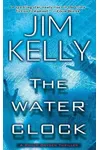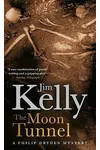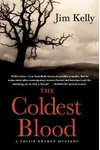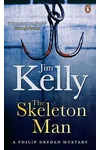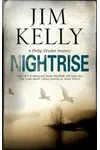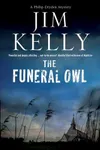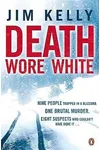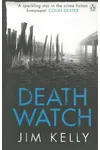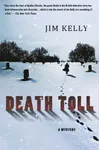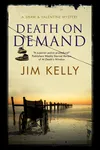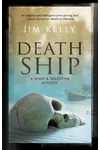Picture a British storyteller who weaves chilling mysteries against the moody backdrop of East Anglia’s fens and coastlines—meet Jim Kelly! Born in 1957, this award-winning crime fiction author has captivated readers with his atmospheric prose and intricate plots. From his journalism roots to crafting beloved series featuring Philip Dryden and Detective Inspector Peter Shaw, Kelly’s journey is a testament to passion and perseverance.
The Making of Jim Kelly
Jim Kelly was born on April Fool’s Day, 1957, in Barnet, Hertfordshire, the son of a Scotland Yard detective. His father’s tales from London’s elite police force and his own childhood haunts at Barnet Library sparked a lifelong love for stories. After studying geography at Sheffield University, Kelly dove into journalism, working at the Bedfordshire Times and later as an education correspondent for the Financial Times. This career honed his knack for detail, setting the stage for his crime fiction debut.
Kelly’s pivot to novel-writing came after years of reporting, inspired by his deep connection to East Anglia’s haunting landscapes. His early attempts at forensic-based mysteries fizzled, but his decision to write what he knew—journalism and the Fens—ignited his literary spark. In 2002, he published his first novel, The Water Clock, launching a career that would earn him critical acclaim.
Jim Kelly’s Unforgettable Stories
Kelly’s novels are a masterclass in blending suspense with vivid settings. His Philip Dryden series, starting with The Water Clock (2002), follows a journalist sleuth navigating Cambridgeshire’s bleak Fens. In this debut, Dryden uncovers a chilling link between a body frozen in ice and a corpse atop Ely Cathedral, a tale shortlisted for the CWA John Creasey Award. The Fire Baby (2004) dives into a 1976 plane crash mystery, weaving personal tragedy with gripping crime.
His second series, featuring Detective Inspector Peter Shaw and DS George Valentine, shifts to the North Norfolk coast. Death Wore White (2008) introduces the duo tackling murders tied to a snowbound crime scene, earning praise for its atmospheric suspense. Death Watch (2010), which won the New Angle Prize, explores a hospital’s dark secrets. Kelly’s prose, often compared to poetry, paints the Fens and Norfolk as characters themselves, with plots hinging on long-buried secrets resurfacing to haunt the present.
Kelly’s style leans on character-driven narratives and historical echoes, avoiding the maverick detective trope. His sleuths—Dryden, a grieving reporter, and Shaw, a family man—are relatable, their flaws grounding the suspense. This balance of plot and personality has drawn comparisons to Agatha Christie, with critics like The New York Times calling his work “a find.”
Why Jim Kelly Matters
Jim Kelly’s impact lies in his ability to elevate crime fiction through setting and subtlety. His novels capture East Anglia’s eerie beauty, making the Fens and Norfolk coast as integral as any character. Winning the 2006 CWA Dagger in the Library Award and the 2010 New Angle Prize, Kelly has earned a loyal following and critical respect. His shift to historical thrillers under the pseudonym J.G. Kelly, like The White Lie, shows his versatility, blending crime with wartime intrigue.
Beyond awards, Kelly’s relatable characters and atmospheric storytelling resonate with readers seeking more than just whodunits. His work invites us to explore the shadows of the past, making him a standout in modern British crime fiction. Living in Ely with his wife, biographer Midge Gillies, and their daughter, Kelly continues to craft stories that linger long after the final page.
About Jim Kelly
- Born: April 1, 1957, Barnet, Hertfordshire
- Key Works: The Water Clock, The Fire Baby, Death Wore White, Death Watch
- Awards: CWA Dagger in the Library (2006), New Angle Prize (2010)
- Lives: Ely, Cambridgeshire, with wife Midge Gillies and daughter
Snag The Water Clock and dive into Jim Kelly’s thrilling world of crime and mystery!
